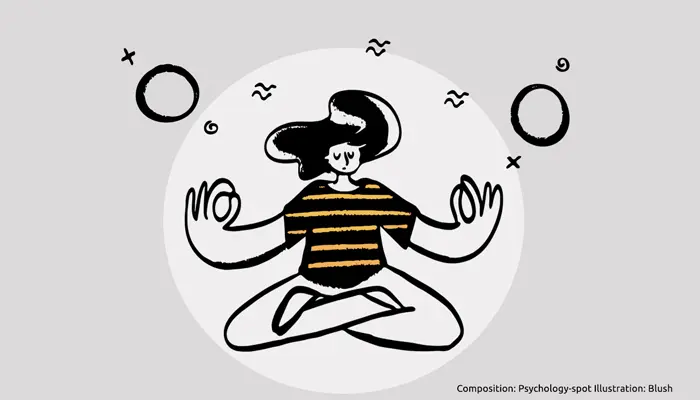
Imbued in the culture of social networks, where appearance usually counts more than essence, it’s easy to fall into the grip of perfectionism. Without realizing it, we not only aim to show a perfect image but we also want to have a perfect life.
The search for that perfection leads us to want to have more and more control, to the point that living according to our perfect standards becomes a not-living. The incessant – and sometimes even obsessive – pursuit of perfection, whether through our possessions, relationships or personal achievements, often leads to stress, anxiety, depression and hurried judgments.
This is where Wabi-Sabi invites to a break.
What is Wabi-Sabi?
Leonard Koren, an American artist, defined the Wabi-Sabi as “The beauty of imperfect, impermanent and incomplete things, the antithesis of our classic Western notion of beauty as something perfect, enduring and monumental […] It comes from that which is so delicate, tenuous, undefined and subtle that it could pass unnoticed as banal or insignificant.”
Wabi-sabi (侘 · 寂) is a Japanese term used to refer to an aesthetic vision of the world. Literally it would be “The beauty of imperfection”, so it’s usually sought in natural elements and those that have an incomplete or impermanent character. Instead of looking for perfect symmetry, we look for asymmetry, simplicity and naturalness.
Applied to our daily life, this Japanese concept encourages us to seek beauty in the imperfections of life, quietly accepting the natural cycle of growth and decay, embracing our cracks, those that make us unique.
Kintsugi: Pride of the cracks

The concept of Wabi-sabi has impregnated so much the Japanese mentality that is expressed through different channels, among them the art of Kintsugi. When valuable pieces of ceramics develop cracks or get broken, instead of trying to hide those “imperfections”, the artisan refills them using a golden lacquer.
In this way the defect isn’t hidden but highlighted, because it is assumed as an expression of the unique history of that object, a sign of its imperfect beauty. It’s about drawing attention to cracks, using them as assets that add value instead of defects to be ashamed of.
The interesting thing about Kintsugi is that it shows precisely the vulnerability and fragility of the piece, those qualities that we normally want to hide. But when they are brought to light, the capacity for recovery and resistance is also highlighted. That duality is what makes the piece more beautiful because, for the Japanese, the appeal lies in the fractured manifestation of mortal destiny.
3 laws to apply the Wabi-Sabi in your life
Richard Powell said that the Wabi-Sabi is “A lifestyle that appreciates and accepts complexity and at the same time values simplicity”. To apply it in our life, he affirmed that we need to understand these three principles or realities:
1. Nothing lasts. Life is unpredictable. Uncertainty awaits us crouching around the corner. But that unpredictability should not be cause of anxiety because when nothing is certain, everything is possible. In a world in which we cling stubbornly to security and perfection, the Japanese concept of Wabi-Sabi can become extremely liberating, helping us to see life with different eyes. We just have to be aware that nothing lasts.
2. Nothing is complete. The Wabi-sabi takes us away from perfection assuming that nothing is complete, everything is in a continuous evolution. Everything changes and is transformed, so it doesn’t make sense to embrace the mentality of conclusionism. From the philosophy of transformation, perfectionism loses its meaning. The fugacity and the impermanence are celebrated then, taking advantage of them to the maximum.
3. Nothing is perfect. This Japanese concept encourages us to focus on the blessings that are hidden in our daily lives, those little things that we take for granted and that make the day happy for its simplicity. Therefore, it’s an invitation to celebrate things as they are, instead of how they should be. It encourages us to accept and embrace reality, with its imperfect beauty, without pretending it to be more or less than what it is.
Expression of authenticity
The Wabi-sabi is a conscious choice, an ode to authenticity. It represents a beautiful message full of wisdom that encourages us to value tranquility, harmony, beauty and imperfection, strengthening at the same time our ability to recover against the onslaught of materialism and perfectionism.
This concept encourages us to relax, decelerate and find pleasure and happiness in what we do. In short, Wabi-sabi gives us the permission to be ourselves, embrace our imperfection and that of the people around us by understanding them as the ultimate expression of uniqueness.
Of course, the Wabi-sabi isn’t at odds with personal growth. There is nothing wrong with wanting to improve, but we must not forget that the means, the social influence, the constant comparisons with the others – that we always perceive as better or happier than us – divert our attention from all the positive in our lives.
Therefore, we must make sure that while we pursue our dreams, we appreciate what we have and accept what surrounds us, with its glorious imperfection.



